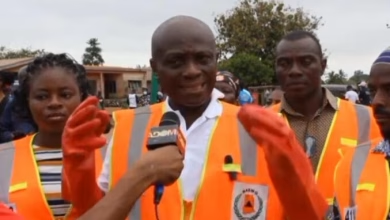Deputy Minister of Trade and Industry, Sampson Ahi, has disclosed that the U.S. Ambassador to Ghana, Virginia Palmer, expressed surprise and concern over the recent 10% tariff imposed on Ghana’s cocoa exports by President Trump.
In an interview on Joy News’ PM Express on Monday, April 7, Ahi shared that the issue was raised during a meeting with Ambassador Palmer earlier that day. The discussion stemmed from the Ghanaian delegation’s view that the tariff was an unfair trade restriction on a commodity that the U.S. does not even produce.
“We questioned the reason behind it,” Ahi told Evans Mensah during the interview. “If you’re going to impose tariffs to remain competitive, you should do so on commodities where you have a competitive advantage. The U.S. doesn’t produce cocoa, yet they’ve imposed a 10% tariff on it.”
He added, “We sought clarification, and the ambassador was also surprised. She felt that if we pushed for it, cocoa might be exempted from this tariff.”
The tariff, introduced by the Trump administration as part of a broader trade strategy affecting several foreign imports, has drawn sharp criticism from cocoa-producing nations. These countries argue that it threatens their economic stability and undermines efforts for fair global trade.
As one of the world’s largest cocoa producers, Ghana depends heavily on cocoa exports for foreign exchange. Any new barriers to cocoa exports could significantly impact the nation’s economy and the livelihoods of millions of cocoa farmers.
Ahi mentioned that Ambassador Palmer did not justify the tariff, instead suggesting that Ghana engage with the U.S. at a higher diplomatic level. “She suggested we take this matter to a higher platform, perhaps involving the president directly,” he noted. “She couldn’t understand why cocoa was included, as they don’t produce it.”
In response, Ghana and other African cocoa-producing nations are planning to collectively address the new tariff measures. Ahi announced that the African Continental Free Trade Area (AfCFTA) is organizing a meeting on April 14 with African trade ministers to discuss the situation.
